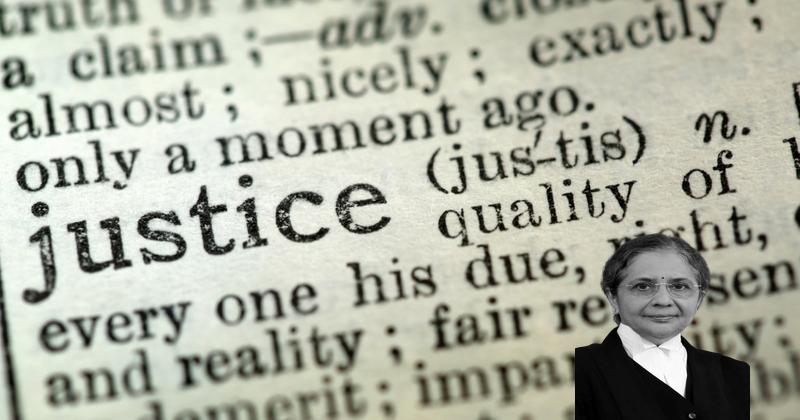Explore a significant legal case where the court delves into the complexities of lease termination and mesne profits, setting a precedent in the legal landscape. The analysis provided sheds light on key aspects such as the determination of leases, creation of new tenancies, waiver implications, and the application of limitations acts. Learn about the nuances of legal reasoning and judicial interpretations in the realm of property law.
Facts
- The agreement of lease dated 21.11.1968 contemplated a 21-year term commencing from the date when the premises were handed over.
- The appellant failed to hand over vacant possession of the 2nd, 3rd, and 4th floors after the lease expired.
- Contentions raised by Ms. Madhavi Divan included the appellant’s acceptance of monthly rent even after the lease was terminated in 1977.
- The appellant was to refund sums deducted by the Corporation from rent and service charges.
- The mortgage deed indicated advances given to complete the construction of the 2nd, 3rd, and 4th floors.
- A formal lease deed was to be executed at a later date.
- Reference was made to a previous suit filed in 1978, which ended in a compromise.
- The appellant was alleged to be in wrongful possession of the floors after the lease expiry.
- A mediator was appointed to quantify mesne profits.
- The possession issue continued until at least May 31, 1994.
- The lease for the 2nd and 3rd floors was found to have commenced on 17.09.1969 by the division bench.
- The parties did not act on the notice of termination, indicating a lack of intention to terminate the lease.
- The appellant failed to plead the creation of a fresh tenancy after the expiry of the original lease.
- Receipt of occupation charges by the respondent did not create a new tenancy but was without prejudice.
- Mere continuation of occupation post-lease expiry does not establish a new tenancy, making the appellant a tenant at sufferance.
- The lease lacked a renewal clause and was determined upon the fixed period’s expiry.
- In the absence of evidence on the exact possession date for the 2nd and 3rd floors, 16 September 1969 was accepted as the starting point of the lease by the division bench.
Also Read: Interpretation of Custody in Contempt of Court Case
Issue
- Point No.01: – Whether the documents styled as agreement dated 21.11.1968 and the supplementary agreement for lease dated 12 September, 1969 constituted a lease?
- Point No.02: – Whether the possession of 2 and 3 floors were handed over on 17.09.1969 and 4 floor stood handed over on 04.11.1970?
Also Read: Enforcement of Arbitral Award – Court’s Legal Analysis
Arguments
- Appellant became entitled to protection under the Tenancy Act due to determination prior to lease expiry
- Referral to Calcutta Credit Corporation Ltd. case for the law on waiver of notice and non-resurrection of old tenancy
- Invoking Section 113 of Transfer of Property Act for no waiver
- Appellant entitled to protection of Tenancy Act based on notice dated 12.12.1977
- Citing Ranjit Chandra Chowdhury case for revival of old tenancy
- Contention that lease had not expired when notice dated 19.10.1990 was issued
- Reliance on judgment in Tayleur v. Wildin for new tenancy creation after withdrawing notice
- Distinguishing Ranjit Chandra Chowdhury v. Mohitosh Mukherjee judgment based on bench strength and analysis
- Insistence on following law declared in Calcutta Credit Corporation Ltd. case
- Mentioning consent of parties leads to creation of new tenancy
- Section 13 of the act prohibits possession recovery unless on specified grounds
- Notice dated 19.10.1990 met requirements of Section 106 of Transfer of Property Act
- Lease determined upon issuance of termination notice
- Appellant argues respondent must establish wrongful possession for mesne profits
- The respondent argues that the observations in Calcutta Credit Corporation Ltd. case are obiter and not binding.
- Refers to Shakti Bhog Food Industries Ltd. case to argue that limitation does not bar the suit.
- The respondent contends that the plea of limitation was not raised before the courts earlier.
- Claims for mesne profits involve daily liability, citing Ram Karan Singh case.
- Refers to a termination notice in 1977 that did not result in the determination of lease, as rent continued to be paid as per lease terms.
- Relies on Ranjit Chandra Chowdhury and Tayabali Jaffarbhai Tankiwala cases to argue that waiver does not establish a new tenancy.
- Claims that Tayabali Jaffarbhai Tankiwala v. Messrs. Asha and Co. is per incuriam and otherwise distinguishable.
- Argues that a large portion of the claim for mesne profits is barred by limitation under Article 51 of the Limitation Act.
Also Read: Supreme Court’s Analysis on Advocates On Record System
Analysis
- The tenant claimed the protection of Section 14 of the Act, allowing the court to decree the payment of arrears and avoid consequences.
- The acceptance of rent created a new agreement, and rent became due under the new agreement.
- The court held that old tenancy ceased to exist after notice, and a new tenancy began upon rent acceptance.
- Sub-letting was found legal in the case.
- The court discussed the wrongful approach of denying mesne profits for non-payment of rent during dispossession.
- The court highlighted the repeal of a specific act and its relevance to the current case.
- It was emphasized that a lease for a fixed period does not automatically cease if there’s a clause to terminate early, unless exercised.
- The court also discussed the requirement of acknowledgment under the Limitation Act for a subsisting liability.
- The court emphasized that inclusion of a clause for prior lease determination does not automatically apply to leases of more than twenty years.
- The court explained the concept of tenant at sufferance and the liability for mesne profits even without the actual receipt of profits.
- The suit filed by the respondent may not fall under Article 51 of the Limitation Act and be barred as regards part of the cause of action.
- The landlord in the suit seeks to realize damages for unauthorized occupation by the tenant after the expiry of the lease.
- The possession of the 4th floor was handed over on 04.11.1970 as per findings by the High Court.
- The claim for damages should not be conflated with profits received under Article 51 of the Limitation Act, but should fall under the residuary Article 113 for calculation.
- According to Order VII Rule 6 of the CPC, the plaintiff must show the grounds for exemption from the law of limitation in the plaint.
- Section 3 of the Act specifies certain provisions that do not apply to leases of specific durations.
- The lease agreement in 1968, supplemented by an agreement in 1969, was deemed valid as a lease.
- Clause 9 of the 1968 lease agreement allows the Lessee to terminate the lease after eight years by giving a six-month notice to the Lessor.
Decision
- The appellant was supposed to hand over the lease property, including furniture and fixtures, on an ‘as is where is’ basis.
- The respondent spent Rs. 8,54,265.60 as per the terms of the agreement but did not receive the security deposit payment for the floors handed over.
- The plaintiff claims mesne profits for the floors in possession of the defendant at a specific rate per sq. ft. per month.
- Article 51 of the current Limitation Act corresponds to Article 109 of the Limitation Act 1908.
- The agreement between M/s Sudera Enterprises and Indian Oil Corporation Ltd. allows the lessee to continue occupation until November 1991.
- There is a provision in the agreement regarding deduction from rent for unpaid loans by the lessee to the respondent.
- The appellant is required to pay a sum equivalent to three months’ rent along with air conditioning and service charges.
- The Lessor was responsible for completing the construction and equipping of different floors in the property.
- Possession of the 2nd, 3rd, and 4th floors will be delivered to the appellant in accordance with the law, without prejudice to rights and contentions.
- Specific clauses in the agreement outline the responsibilities of both parties regarding the different floors in the property.
- The Lease period has not yet expired, so the question of delivering possession at this stage does not arise.
Case Title: INDIAN OIL CORPORATION LTD. Vs. SUDERA REALTY PRIVATE LIMITED (2022 INSC 928)
Case Number: C.A. No.-006199-006199 / 2022



